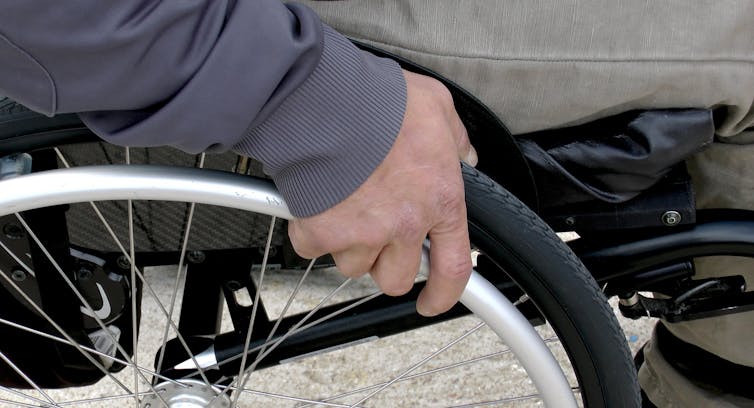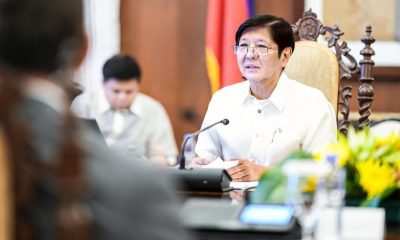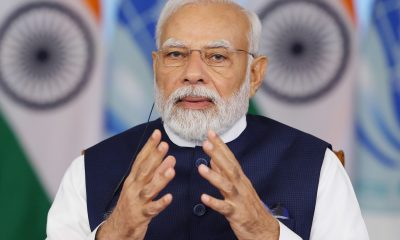Canada News
COVID-19: Financial future grim for Canadians with disabilities, health conditions


(Pixabay)
As Canadians, we like to think we’ve done a far better job responding to COVID-19 than other places, including our neighbour to the south.
Our relative success lies in swift responses to and consistent messaging about the pandemic in non-partisan ways. Nationwide physical distancing measures were done in consultation with public health officials, resulting in a national shutdown beginning in March 2020. Our understanding and approach to the pandemic has also led to a relatively more cautious recovery.
Consistent economic support was also an important pillar of the federal government’s response to COVID-19. Canadian wage earners out of work or at reduced hours received a taxable monthly basic income of $2,000 per month (the Canada Emergency Response Benefit known as the CERB), helping many Canadians face the resulting economic tumult.
Read more:
How to build a better Canada after COVID-19: Transform CERB into a basic annual income program
But many groups have been left out of government policies and programs and are struggling.
At the University of Toronto and University of Alberta, we conducted a nationwide survey, to be published at a later date, that revealed Canadians with disabilities and chronic health conditions are very worried about getting COVID-19.
Respondents also said they feel like their voices aren’t being heard by policy-makers. They’re concerned about their long-term economic situation.
Do not qualify for the CERB
Many people with disabilities and health conditions who qualify for disability benefits do not qualify for the more generous COVID-19 benefits, like the CERB, even though the pandemic has imposed on them additional financial strains.
One immunocompromised respondent with multiple health conditions including diabetes, hypertension and obesity noted that they already live on $400 less than those getting CERB.
“They complain at how ‘little’ they are getting, all while telling us disabled that we should be grateful that we get as much as we do. Sorry, but how are we expected to permanently survive on this while they can’t survive even a few months on their savings and hundreds more than we get? Knowing that costs are going up, yet income is not going to for at least another four years is terrifying. I’m unable to work any time in the near future, so I am falling further and further behind with each passing day.”
A lack of additional disability supports has meant that vulnerable groups have had to look to other means for supporting themselves through the pandemic.


(Pixabay)
We found that about 40 per cent of our respondents have added to their credit card debt since the start of the pandemic, and almost half say that the pandemic is negatively affecting their ability to pay their debts.
Over a third of our respondents say they are struggling to pay their rent, mortgage and utility bills because of COVID-19. Sadly, over half our sample say they are struggling to pay for groceries.
Incurring extra costs
An individual with a physical disability and who is also immunocompromised noted:
“There has been no additional financial support, but like everyone else, we are incurring extra costs for essentials as we need things delivered or help with everyday shopping and chores.”
The pandemic is also limiting respondents’ abilities to prepare for future financial emergencies. Almost two-thirds of respondents say they are struggling to save money during the pandemic. Instead, many are having to dip into their savings to make ends meet.
A homemaker with chronic health problems told us she used $15,000 from her savings just to get by. With her husband unable to find work, she says:
“We just get further and further behind and there is no additional help. I get none.… What am I supposed to do? I feel very left out. I’m very depressed and feel like there is no hope. Every day when you think it can’t get any worse something worse comes up.”
Even with comparatively better conceived and consistent policies in Canada, and relatively more generous social and economic supports to counter the negative effects of COVID-19, vulnerable people are still being left out.
Too little, too late?
Over a million Canadians have a Disability Tax Credit certificate (DTC) and a significant majority of those are for an indeterminate duration. Only recently, Carla Qualtrough, Canada’s employment minister, proposed a onetime $600 payment to people with disabilities holding a valid DTC certificate.
That may be too little, too late. It certainly won’t be enough to mitigate the economic devastation the pandemic leaves behind.
People with disabilities in this country already experience low employment and low earnings, living paycheque to paycheque. They are also more likely to live in poverty.
Added setbacks during the pandemic could prove insurmountable as we enter into some sort of recovery, running the risk of further marginalizing people with disabilities and health conditions.![]()
![]()
David Pettinicchio, Associate Professor, Sociology, University of Toronto and Michelle Maroto, Associate Professor of Sociology, University of Alberta
This article is republished from The Conversation under a Creative Commons license. Read the original article.





















